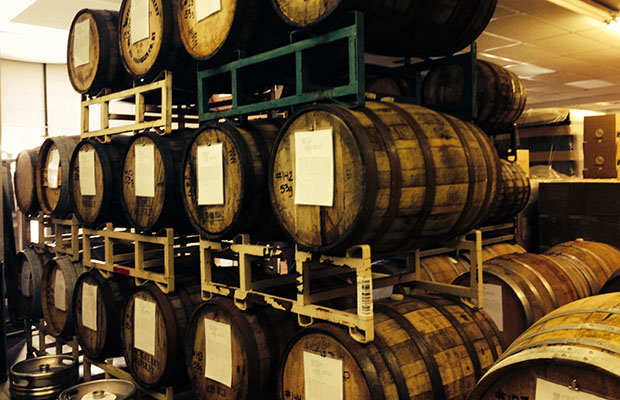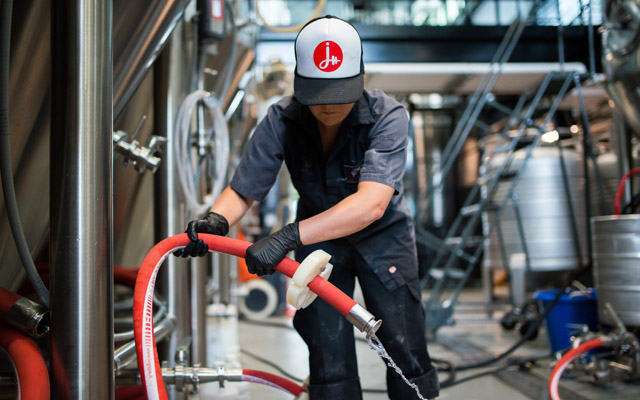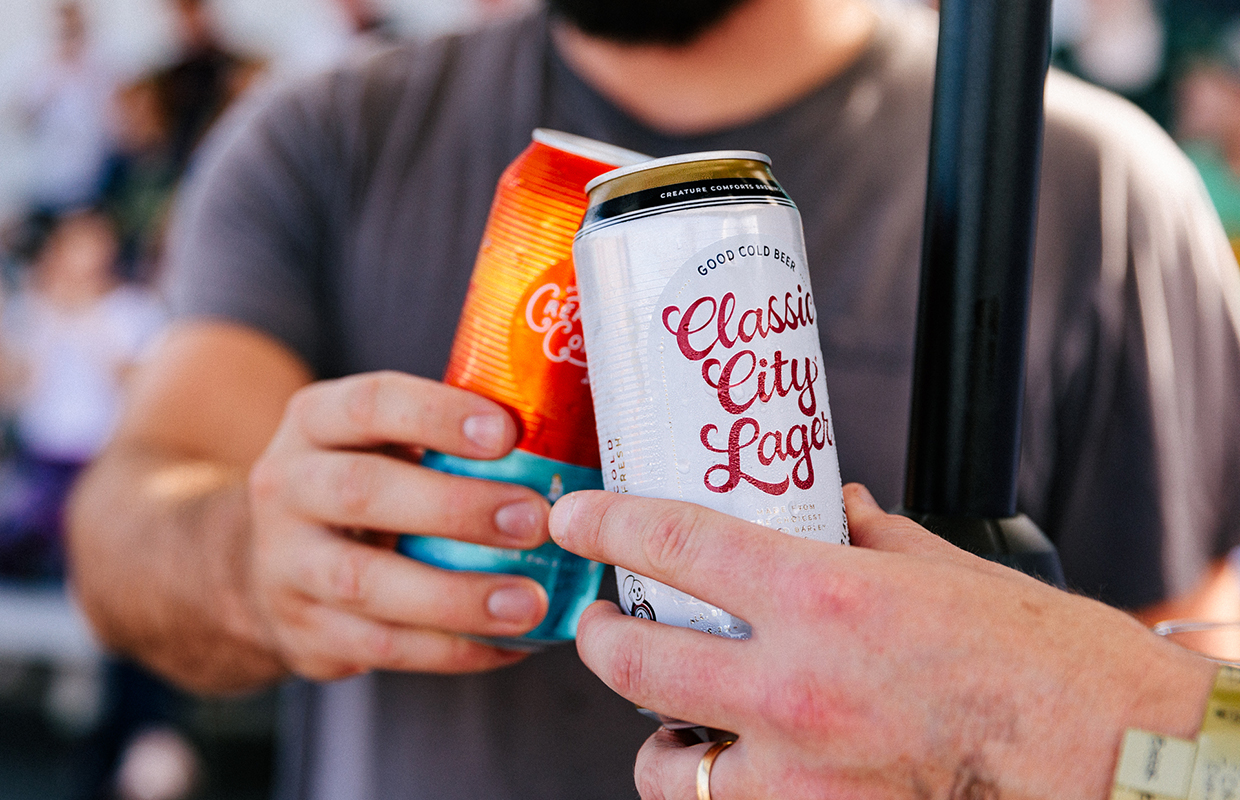
In an ongoing series, Brewer will take a small note from interviews of some of the Fundamental stories it has run and given a small tidbit that didn’t make the issue but is still worth diving into. “Next-Level Barrel-Aging Tips” appears in the July/August issue of Brewer.
Sourcing barrels and even thinking about how many to have on hand is a game of cost and need … and forecasting. Although barrel-aging can be fun, it can get costly and time-consuming, which means making sure that you have the right number on hand and that it equals customer demand.
No-Li Brewhouse had an active barrel-aging program of nearly 90 wood barrels at one point, said owner John Bryant, gradually building a barrel-aging program from various distilleries and wineries across America.
“It was fun, challenging, and rewarding,” Bryant told Brewer. “About two years ago, the customer interest and demand for barrel-aged beers plummeted and became much more of a niche customer audience.
“We have gradually reduced the number of barrels in our program to less than 20 total that we feature for very special occasions and events. We deeply appreciate and value barrel aging. It would be interesting to see if the barrel-aging trend is common for craft brewers in the USA.”
Although Funkwerks has purchased barrels directly from wineries, more often than not head brewer Gordon Schuck says they work with Rocky Mountain Barrel Company to secure barrels.
“Having a reputable supplier is key to avoiding poor quality barrels, especially if you can’t evaluate them at the source,” he said, adding that quality checks begin with visual and aromatic evaluations followed by hoop tightening, rinsing, and swelling.
Phil Roche, the head brewer for Ecliptic Brewing echoed that saying they do a visual inspection, by looking and smelling the inside.
“We then fill them with 200-degree water and look for any leaks,” he said. “When we are ready to fill barrels, we purge them with CO2 first and then fill.”
With the barrel-aging program at Cascade Lakes Brewing still very small and new, Ryan Schmiege said he likes to use barrels from trusted local and regional wineries and distilleries that he’s developed relationships with throughout his brewing career.
“Quality is never a guarantee with wood so trusting the people and their processes are my best QA,” he said. “Also, acquiring barrels as soon as possible after they have been emptied and filling them soon after is key.”
At WeldWerks, Skip Schwartz said they work with quite a lot of different people when it comes to barrel sourcing.
“If you’re talking about smaller or specialty distilleries we try to connect with them directly, but we also work with a lot of different barrel brokers,” said the brewery’s Innovation and Wood Cellar Lead. “One of our favorites are the guys at Kentucky Bourbon Barrel since they are located in the heart of Bourbon Country and are able to source some of the best Bourbon barrels on the market.
“We typically aren’t able to get out to Kentucky to do in-person inspections before purchasing, so we have to trust the relationships built at the brokers.”
Schwartz and WeldWerks co-founder and head brewer Neil Fisher have spent years cultivating those relationships and so they trust their sources to be the eyes before sending the barrels to Colorado.
“Plus, most of them know a lot more about coopering and barrels than I do,” he said.
In a few weeks, we’ll check in with brewers to discuss taking care of their fleets of barrels.




1 Trackback / Pingback